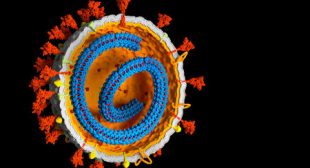genetics
A team of prominent scientists has doubled down on its controversial hypothesis that genetic bits of the pandemic coronavirus can integrate into our chromosomes and stick around long after the infection is over. If they are right—skeptics have argued th ...[Read more]
1
Like
Save
he earliest Britons were black-skinned, with dark curly hair and possibly blue eyes, new analysis of a 10,000-year-old Somerset skeleton has revealed.
Scientists at the Natural History Museum have used pioneering genetic sequencing and facial reconstructi ...[Read more]
0
Like
Save
Federal officials on Tuesday ended a moratorium imposed three years ago on funding research that alters germs to make them more lethal.
Such work can now proceed, said Dr. Francis S. Collins, the head of the National Institutes of Health, but only if a sc ...[Read more]
0
Like
Save
Medical ethicists are concerned about recent developments in this field involving the growth of these tiny brains in other animals.
Two teams of scientists plan to present previously unpublished research on the unexpected interaction between human min ...[Read more]
0
Like
Save
Speaking to participants of the World Festival of Youth and Students in Sochi, Russian President Vladimir Putin revealed the future technology he believes can prove to be more terrible than nuclear weapons.
According to the president, genetic programming ...[Read more]
0
Like
Save
Over the past 20 years, global scientists have achieved a significant breakthrough in the area of animal cloning, with China announcing last week that it had become the first country in the world to clone a genetically engineered dog. ...[Read more]
0
Like
Save





